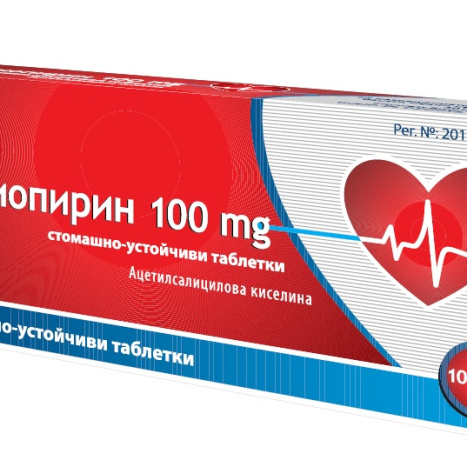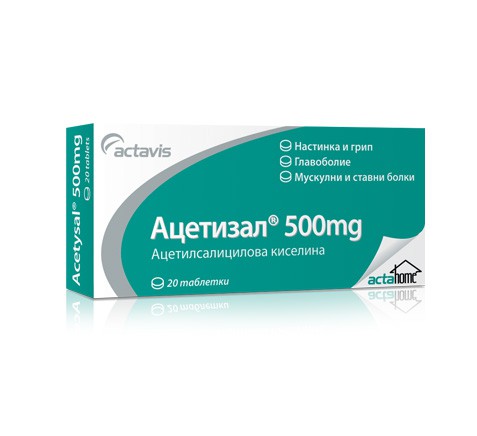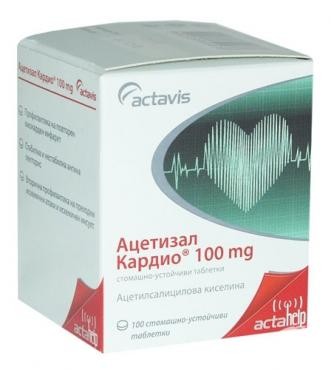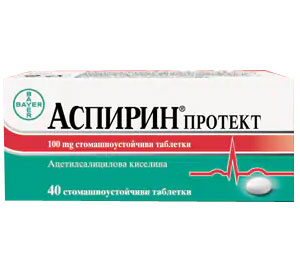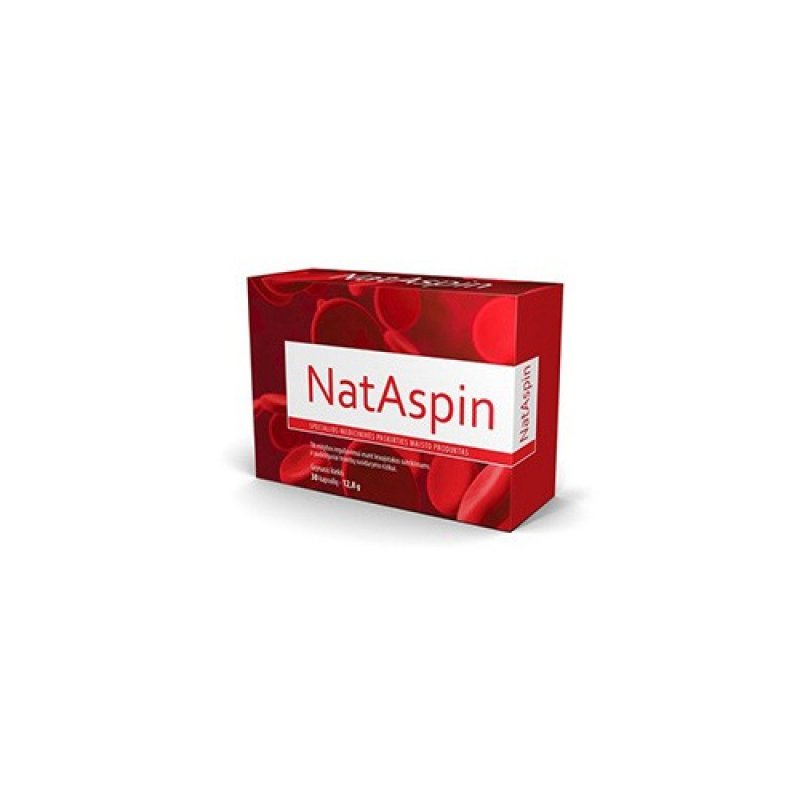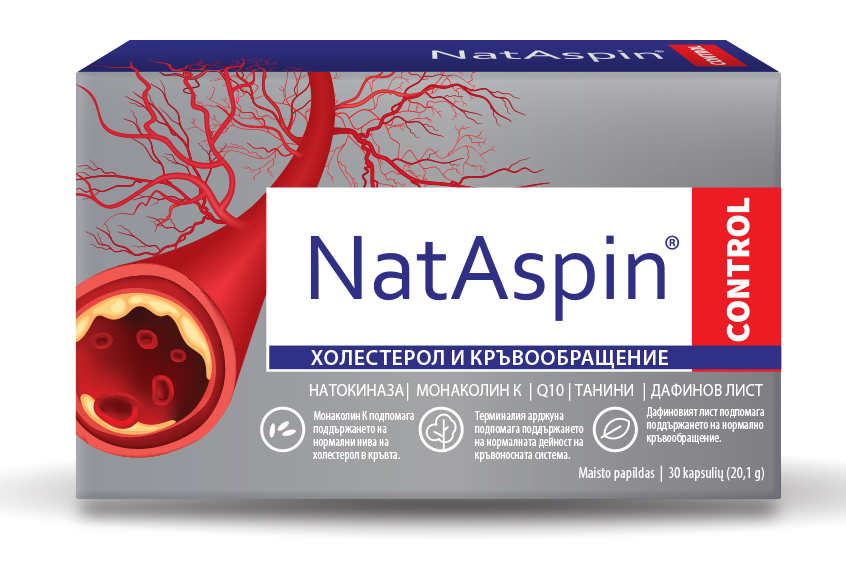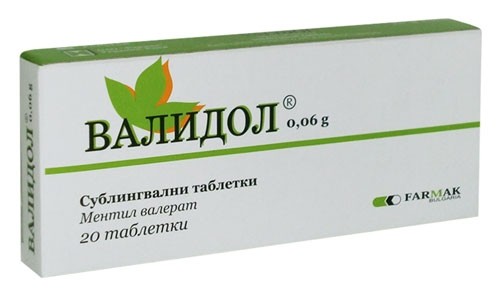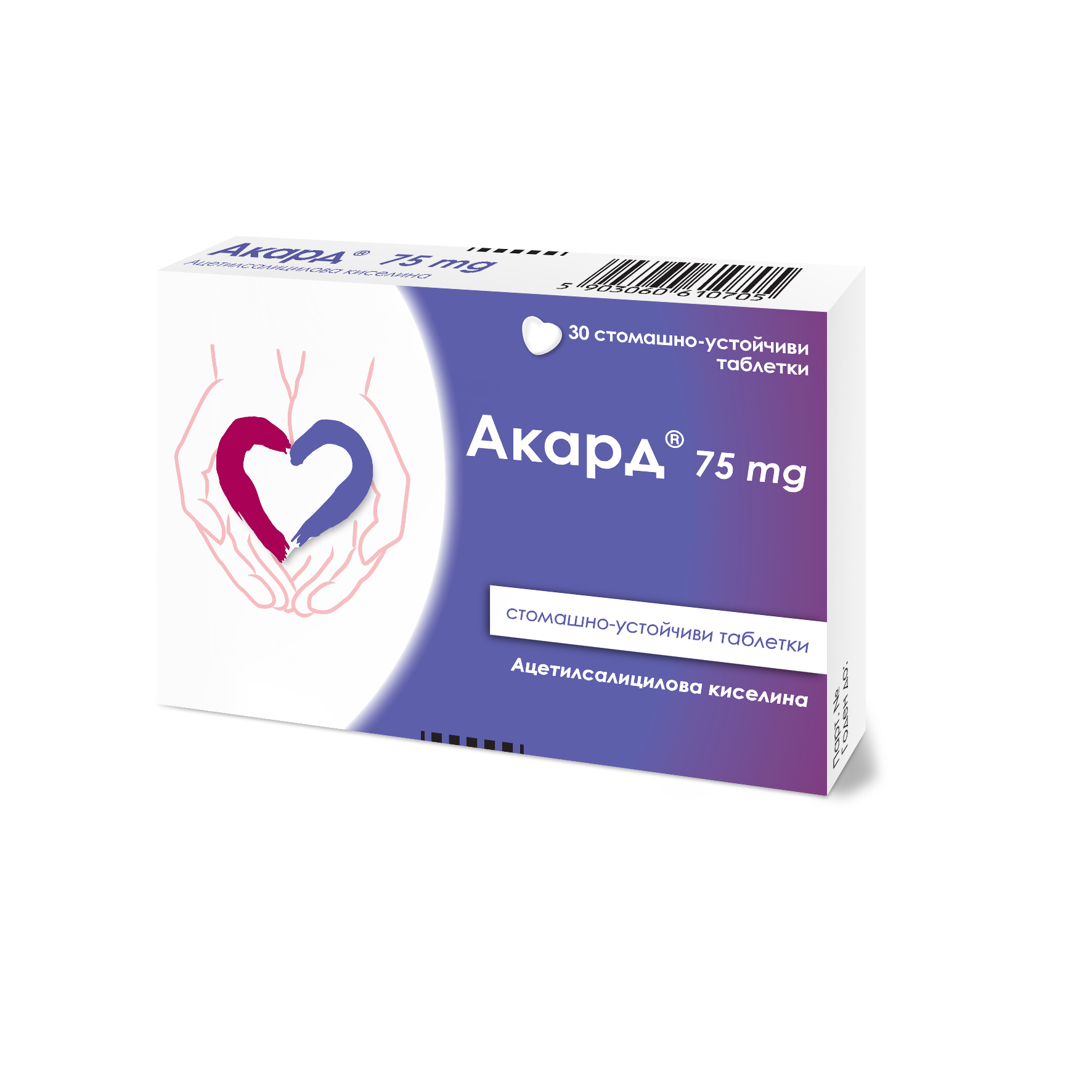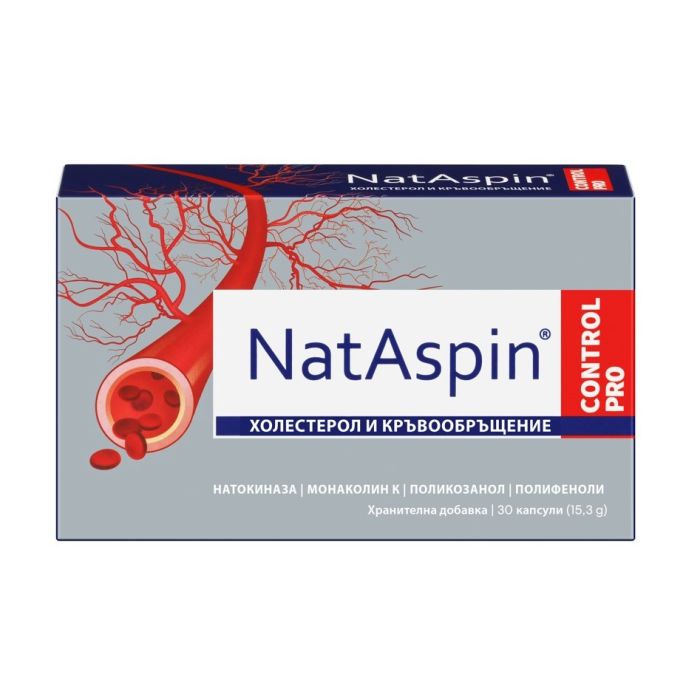CARDIOPIRIN 100mg x 30 tabl
Cardiopyrin 100 mg gastro-resistant tablets
Cardiopirin 100 mg gastro-resistant tablets
Acetylsalicylic acid
Read all of this leaflet carefully before you start taking this medicine because it contains important information for you.
Always take this medicine exactly as described in this leaflet or as your doctor or pharmacist has told you
- Keep this leaflet. You may need to read it again.
- If you need further information or advice, ask your pharmacist.
- If you get any side effects, tell your doctor or pharmacist. This also includes any possible side effects not described in this leaflet. See point 4.
- If you do not feel better or your condition worsens, you should seek medical attention.
What this leaflet contains:
1. What Cardiopyrin is and what it is used for
2. What you need to know before you take Cardiopyrin
3. How to take Cardiopyrin
4. Possible side effects
5. How to store Cardiopyrin
6. Contents of the package and additional information
1. What Cardiopyrin is and what it is used for
Cardiopyrin contains acetylsalicylic acid, which in low doses belongs to the group of drugs called antiplatelet agents. Platelets are small cells in the blood that cause the blood to clot and are involved in the thrombosis process. When a blood clot forms in an artery, it stops blood flow and cuts off the oxygen supply. When it happens in the heart, it can cause a heart attack or angina; in the brain can lead to a stroke.
Cardiopyrin is taken to reduce the risk of blood clots and thus prevent the further occurrence of:
- heart attacks;
- strokes;
- cardiovascular problems in patients who suffer from stable or unstable angina (a type of chest pain).
Cardiopyrin is also used to prevent blood clots from forming after certain types of heart surgery to widen or unblock blood vessels.
This medicinal product is not recommended in emergency situations. It can only be used as a prophylactic treatment.
2. What you need to know before you take Cardiopyrin
Do not take Cardiopyrin
- if you are allergic to acetylsalicylic acid or to any of the other ingredients of this medicine (listed in section 6).
2
- if you currently have or have ever had a stomach or small bowel ulcer or any other type of bleeding, such as a haemorrhagic stroke;
- if you have ever had a problem with blood clotting;
- if you have severe liver or kidney problems;
- if you are in the last 3 months of pregnancy, you should not use doses that are higher than 100 mg per day (see the point "Pregnancy and breastfeeding");
- if you are taking a medicine called methotrexate (for example for cancer or rheumatoid arthritis) in doses higher than 15 mg per week.
Warnings and precautions
Talk to your doctor or pharmacist before taking Cardiopyrin if:
- you have kidney, liver or heart problems;
- you have or have ever had stomach or small intestine problems;
- you have high blood pressure;
- you have asthma, you are allergic to other medicines, more precisely to other salicylates or non-steroidal anti-inflammatory drugs (NSAIDs), you have hay fever, polyps in the nose or other chronic diseases of the respiratory system; acetylsalicylic acid can trigger an asthma attack;
- you have ever had gout;
- you have heavy menstrual cycles.
You should seek medical help immediately if your symptoms get worse or if you have severe or unexpected side effects, such as unusual bleeding symptoms, serious skin reactions or any other sign of a serious allergy (see section "Possible side effects").
Tell your doctor if you are planning to have surgery (even a minor one, such as a tooth extraction), as acetylsalicylic acid thins the blood and there may be an increased risk of bleeding.
Children and adolescents
Acetylsalicylic acid can cause Reye's syndrome when given to children. Reye syndrome is a very rare disease that affects the brain and liver and can be life-threatening. For this reason, Cardiopyrin should not be given to children under the age of 16, except on the advice of a doctor.
You should be careful not to become dehydrated (you may feel thirsty, with dry mouth), as the use of acetylsalicylic acid at the same time can lead to deterioration of kidney function.
This medicinal product is not suitable for use as a pain reliever or fever reducer.
If any of the above apply to you or if you are not sure, talk to your doctor or pharmacist.
Other medicines and Cardiopyrin
Tell your doctor or pharmacist if you are taking, have recently taken or might take any other medicines.
The effect of the treatment may be affected if acetylsalicylic acid is taken at the same time as certain other medicines for:
- blood thinning / prevention of blood clots (such as warfarin, heparin, clopidogrel);
- organ rejection after transplantation (cyclosporine, tacrolimus);
- high blood pressure (such as diuretics and ACE inhibitors);
- heart rhythm regulation (digoxin);
3
- manic-depressive illness (lithium);
- pain and inflammation (such as: NSAIDs such as ibuprofen, or steroids, or metamizole)
Metamizole (a pain reliever and fever reducer) may reduce the effect of acetylsalicylic acid on platelet aggregation (sticking together of blood cells and blood clot formation) when taken at the same time. Therefore, this combination should be used with caution in patients taking low-dose acetylsalicylic acid for cardioprotection (protection).
- gout (such as probenecid);
- epilepsy (valproate, phenytoin);
- glaucoma (acetazolamide);
- cancer or rheumatoid arthritis (methotrexate; in doses lower than 15 mg per week);
- diabetes (such as glibenclamide);
- depression (serotonin reuptake inhibitors such as sertraline or paroxetine);
- use as hormone replacement therapy when the adrenal glands or pituitary gland have been destroyed or removed, or to treat inflammation, including rheumatic diseases and inflammatory bowel disease (corticosteroids).
Cardiopyrin with food, drink and alcohol
The gastro-resistant tablets can be taken with or without food.
Alcohol use may increase the risk of gastrointestinal bleeding and increase bleeding time.
Pregnancy, lactation and fertility
If you are pregnant or breast-feeding, think you may be pregnant or are planning to become pregnant, ask your doctor or pharmacist for advice before using this medicine.
Pregnant women should not take acetylsalicylic acid during pregnancy unless advised by their doctor.
You should not take Cardiopyrin if you are in the last 3 months of pregnancy, unless you are advised to do so by your doctor and then the daily dose should not exceed 100 mg (see the point "Do not take Cardiopyrin "). Regular intake or high doses of this medicinal product during late pregnancy can cause serious complications for the mother or the baby.
Women who are breastfeeding should not take acetylsalicylic acid unless advised by their doctor.
Driving and using machines
Cardiopyrin should not affect your ability to drive or use machines.
This medicine contains less than 1 mmol sodium (23 mg) per gastro-resistant tablet, i.e. it can be said to be practically sodium-free.
3. How to take Cardiopyrin
Always take this medicine exactly as your doctor or pharmacist has told you. If you are not sure, ask your doctor or pharmacist.
Adults
Prevention of heart attacks:
The recommended dose is 75 - 150 mg once a day.
Stroke Prevention:
The recommended dose is 75-300 mg once daily.
4
Prevention of cardiovascular problems in patients who suffer from stable or unstable angina (a type of chest pain):
The recommended dose is 75-150 mg once a day.
Prevention of blood clots after certain types of heart surgery:
The recommended dose is 75-150 mg once a day.
People in old age
As in adults. In general, acetylsalicylic acid should be used with caution in elderly patients who are more prone to adverse drug reactions. Treatment should be reviewed at regular intervals.
Use in children and adolescents
Acetylsalicylic acid should not be taken by children and adolescents under the age of 16, unless prescribed by a doctor (see section "Precautions and warnings").
Application method
For oral use.
Tablets should be swallowed whole with sufficient liquid (1/2 cup of water). The tablets have a gastro-resistant coating that prevents intestinal irritation, so they should not be crushed, broken or chewed.
If you have taken more than the required dose of Cardiopyrin
If you (or someone else) accidentally take too many tablets, you should tell your doctor or contact the nearest emergency department immediately. Show the rest of the tablets or the empty pack to the doctor.
Overdose symptoms may include ringing in the ears, hearing problems, headache, dizziness, confusion, nausea, vomiting, and abdominal pain. A serious overdose can cause breathing faster than normal (hyperventilation), fever, excessive sweating, restlessness, seizures, hallucinations, low blood sugar, coma, and shock.
If you forget to take Cardiopyrin
If you miss a dose, wait until it is time for your next dose and continue as usual.
Do not take a double dose to make up for a missed tablet.
If you have any further questions related to the use of this medicine, ask your doctor or pharmacist.
4. Possible side effects
Like all medicines, this medicine can cause side effects, although not everybody gets them.
If you notice any of the following serious side effects, stop taking Cardiopyrin and contact a doctor immediately:
- Sudden difficulty breathing, swelling of the lips, face or body, rash, fainting or difficulty swallowing (severe allergic reaction) (rare).
- Redness of the skin, with blisters or peeling, may be associated with high fever and joint pain. This could be erythema multiforme, Stevens-Johnson syndrome or Lyell syndrome (rare).
- Unusual bleeding, such as coughing up blood, blood in vomit or urine, or black stools (frequency not known).
- Mouth ulcers, fever and infection(s) (agranulocytosis - a severe decrease in the number of white blood cells) (rare).
5
The possible side effects listed below are grouped by frequency of occurrence.
Common side effects (affects 1 to 10 users in 100):
- indigestion.
- increased tendency to bleed.
Uncommon side effects (affects 1 to 10 users in 1,000):
- hives (urticaria).
- a runny nose
- breathing difficulties.
Rare side effects (affects 1 to 10 users in 10,000):
- severe bleeding in the stomach or intestines, brain haemorrhage, change in the number of blood cells.
- nausea and vomiting.
- spasms in the lower respiratory tract, asthma attack.
- inflammation of blood vessels.
- formation of bruises with red-violet spots (subcutaneous bleeding).
- severe skin reactions such as a rash known as erythema multiforme and its life-threatening forms Stevens-Johnson syndrome and Lyell syndrome.
- hypersensitivity reactions, such as swelling of the lips, face or body, or shock.
- unusually heavy or prolonged menstrual periods.
Adverse reactions with an unknown frequency (frequency cannot be determined from the available data):
- ringing in the ears (tinnitus) or reduced ability to hear.
- headache.
- vertigo.
- ulcers in the stomach or small intestine and perforation.
- increased bleeding time.
- impaired renal function.
- impaired liver function.
- high levels of uric acid in the blood.
Reporting adverse reactions
If you get any side effects, tell your doctor or pharmacist. This includes all possible side effects not described in this leaflet. You can also report side effects directly by:
Medicines Executive Agency
8 Damyan Gruev St
1303 Sofia
Tel.: +359 2 8903417
website: www.bda.bg
By reporting side effects, you can contribute to getting more information about the safety of this medicine.
5. How to store Cardiopyrin
Keep out of the reach of children.
To be stored below 25C.
Blister: Store in the original package to protect from moisture.
Do not use this medicine after the expiry date which is stated on the carton/blister after EXP:/EXP. The expiration date corresponds to the last day of the specified month.
6
Do not dispose of medicines down the drain or in the household waste container. Ask your pharmacist how to throw away medicines you no longer use. These measures will help protect the environment.
6. Contents of the package and additional information
What Cardiopyrin contains
- The active substance is acetylsalicylic acid. Each gastro-resistant tablet contains 100 mg of acetylsalicylic acid.
- The other ingredients are:
tablet core: microcrystalline cellulose, corn starch, silicon dioxide, colloidal anhydrous, stearic acid;
film coating: copolymer of methacrylic acid - ethyl acrylate (1:1) dispersion 30%, polysorbate 80, sodium lauryl sulfate, triethyl citrate, talc.
What Cardiopyrin looks like and contents of the pack
Cardiopyrin gastro-resistant tablets 100 mg are white, round, biconvex gastro-resistant tablets with a diameter of 7.2 mm.
Size of packages:
Blisters: 10, 20, 28, 30, 50, 56, 60, 90, 100 gastro-resistant tablets.
Not all types of packaging can be put on sale.
License holder
Bausch Health Ireland Limited
3013 Lake Drive
Citywest Business Campus
Dublin 24, D24PPT3
Ireland
Manufacturer
ICN Polfa Rzeszów SA
2 Przemysłowa Street
35-959 Rzeszów
Poland
This medicinal product is authorized for use in the EEA member states under the following names:
Sweden
Esteprin
Bulgaria
Cardiopyrin 100 mg gastro-resistant tablet
Czech Republic
Vasopirin 100 mg
Poland
Cardiopirin
Slovakia
Vasopirin 100 mg
Slovenia
Provapirin 100 mg gastroresistant tablets
Leaflet last revised date: 11/2020


